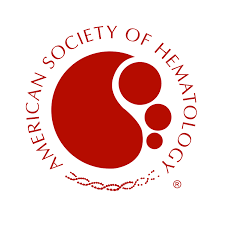- Center on Health Equity & Access
- Clinical
- Health Care Cost
- Health Care Delivery
- Insurance
- Policy
- Technology
- Value-Based Care
ICYMI: Highlights From ASH 2024
The 66th American Society of Hematology (ASH) Annual Meeting & Exposition took place December 7-10, 2024, in San Diego, California; the 2025 meeting is currently scheduled to take place in Orlando, Florida, December 6-9.
Recent advancements in hematology and oncology highlight progress in both treatment outcomes and care equity, as seen through our top coverage from the 66th American Society of Hematology (ASH) Annual Meeting & Exposition. Key findings include the benefits of ciltacabtagene autoleucel (cilta-cel) plus daratumumab in multiple myeloma (MM) and acalabrutinib and venetoclax in chronic lymphocytic leukemia (CLL).
You can also catch up on all of our conference coverage on our dedicated ASH page.
5. Quality Session Launches “Treating Fairly,” Addresses Equity in Care, Access, Data Collection
According to this session, “Treating Fairly,” the successor campaign to “Choosing Wisely,” will also seek to correct practices that do not deliver hematology care on an equitable basis, with the overarching goal to improve access to cancer care. The session, “Treating Fairly: The Role of Quality Improvement in Combating Health Care Disparities,” saw presentations on several equity initiatives: the Michigan Social Health Interventions to Eliminate Disparities program, also known as MSHIELD; from Ontario, Canada, treating iron deficiency in women; and from North Carolina, addressing financial toxicity.
4. Fixed-Duration Acalabrutinib Plus Venetoclax Beats Chemoimmunotherapy in First-Line CLL; Adding Obinutuzumab Boosts PFS
An interim analysis of data from the phase 3 AMPLIFY trial (NCT03836261) showed superior outcomes from a regimen of fixed-duration acalabrutinib (Calquence; AstraZenca) and venetoclax (Venclexta; AbbVie) compared with chemoimmunotherapy, and that adding obinutuzumab (GAzyva; Genentech) boosted survival even more among patients with newly diagnosed CLL. Lead study investigator Jennifer R. Brown, MD, PhD, of Dana-Farber Cancer Institute and Harvard Medical School, touted the results of this all-oral regimen as improving patient quality of life, in that patients could take breaks from the treatment, which could help to reduce the risk of eventual drug resistance.
At the 2024 ASH Annual Meeting & Exposition, key data from several phase 3 studies were presented, along with findings in health equity and patient outcomes of quality of life and long-term survival. | Image Credit: © ASH

3. Great Advances in AML, Multiple Myeloma at ASH 2024
In this recap of several of our expert interviews from the conference, Amir Ali, PharmD, BCOP, University of Southern California; Yi Lin, MD, PhD, Mayo Clinic; and Rakesh Popat, MBBS, PhD, University College Hospital in London, United Kingdom, provide their biggest takeaways from across the past year and the study of acute myeloid leukemia (AML) and MM. Ali spoke of menin inhibitors, a form of targeted therapy that fights AML; Lin addressed the FDA’s decision to allow minimal residual disease (MRD) negativity as a surrogate end point in clinical trials; and Popat spoke of several investigative regimens for smoldering MM.
2. Daratumumab Significantly Delays Smoldering Multiple Myeloma Progression
Results from the second phase 3 trial on this list, AQUILA (NCT03301220), show a 63.1% progression-free survival rate at the 5-year mark after 3 years of treatment with subcutaneous daratumumab and hyaluronidase-fihj (Darzalex Faspro; Janssen) vs 40.8% seen from active monitoring alone. In this study, patients were randomized 1:1 to daratumumab monotherapy (n = 194) or active monitoring (n = 196) and then stratified per total risk factors. Overall survival at the 5-year mark also demonstrates the superiority of daratumumab compared with active monitoring: 93.0% vs 86.9%, for a 48% reduced risk of death (HR, 0.52; 95% CI, 0.27-0.98).
1. Cilta-Cel Leads to Prolonged Progression-Free Survival in Multiple Myeloma
Data from the phase 3 CARTITUDE-4 trial (NCT04181827) of cilta-cel vs standard-of-care triplet regimens demonstrate a survival advantage from the chimeric antigen receptor T-cell therapy in patients who have failed 1 to 3 prior lines of therapy. Lin from Mayo Clinic presented the findings at ASH, and in this interview, she speaks to the sustained MRD negativity results, particularly among patients with characteristics of high-risk disease. The FDA approved cilta-cel on April 5 for earlier use in patients who have relapsed/refractory MM.
